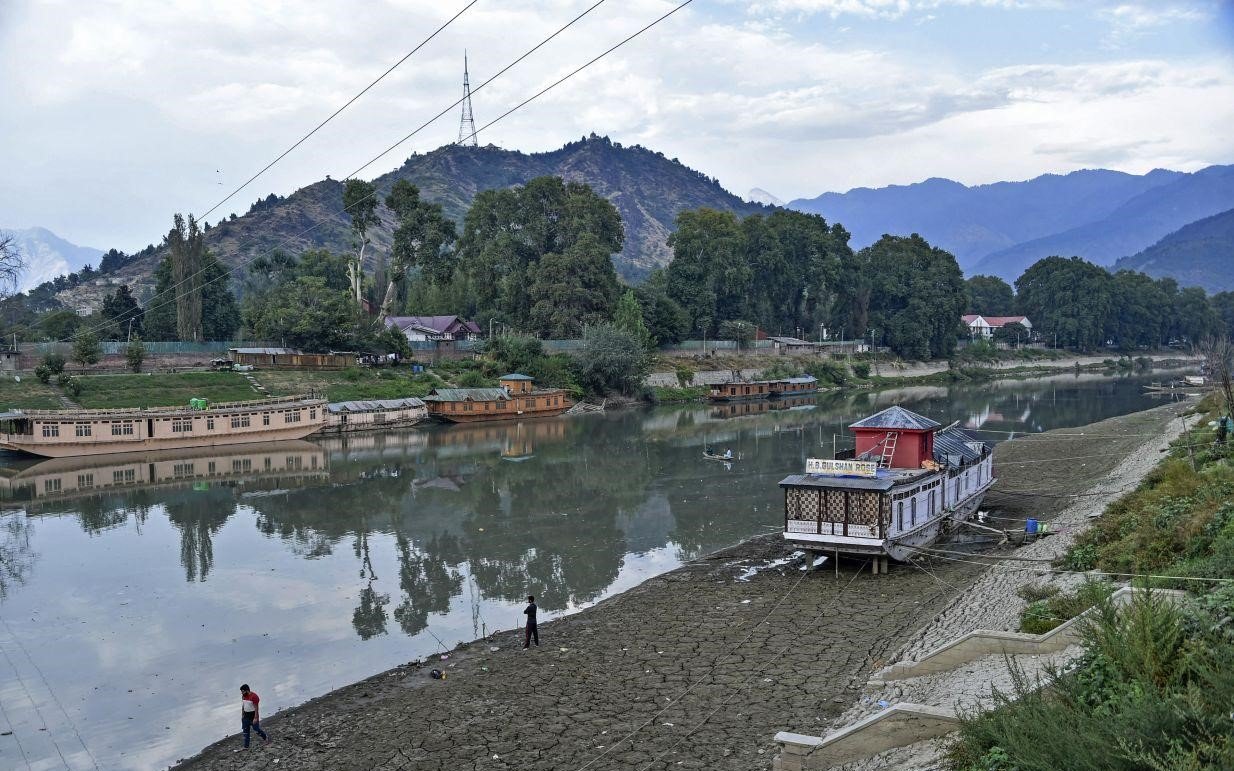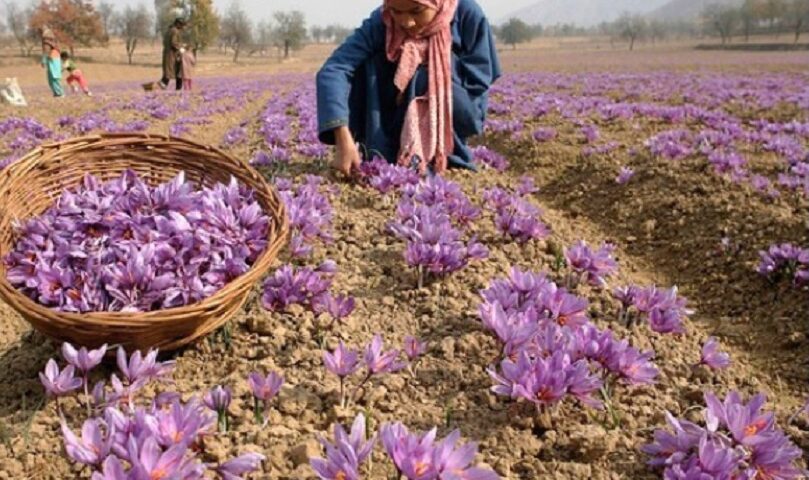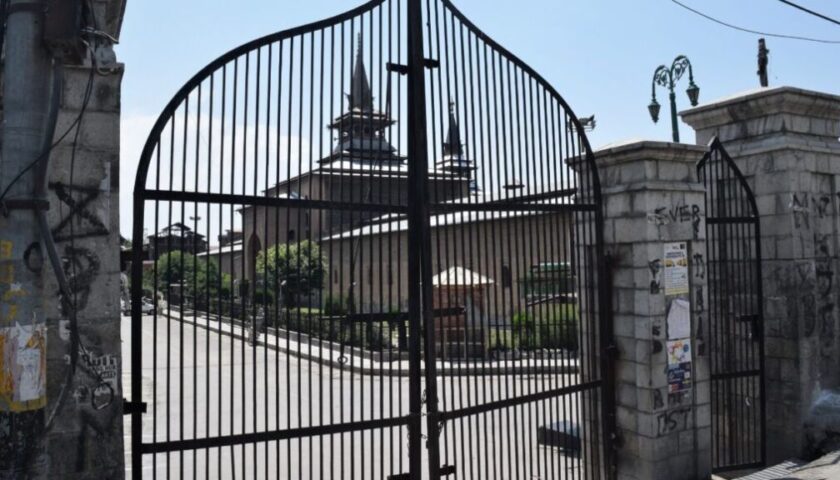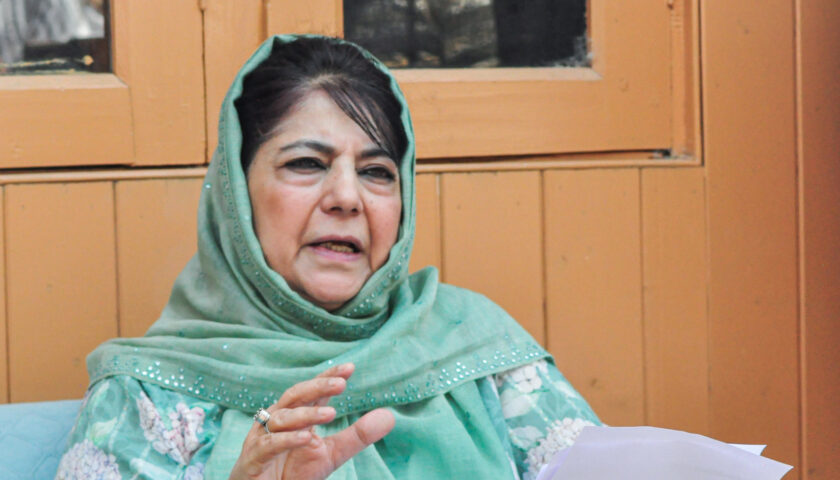A Lifeline Drying Up
By: Javid Amin
The Jhelum River, Kashmir’s majestic waterway and the lifeblood of its people, is in peril. The once-mighty river, renowned for its pristine waters and bountiful ecosystem, is now a shadow of its former self. A relentless dry spell has gripped the Kashmir Valley, and the Jhelum is bearing the brunt of this ecological catastrophe.
The river’s water levels have plummeted to unprecedented depths, a stark indicator of the region’s deepening water crisis. What was once a vibrant aquatic corridor teeming with life is now a skeletal outline of its former glory. The consequences of this ecological downturn are far-reaching, impacting everything from agriculture and hydropower generation to the livelihoods of millions.
A Silent Crisis Unfolding
The crisis is not just a statistical anomaly; it’s a living, breathing tragedy unfolding before our eyes. Once-bustling riverbanks are now desolate, devoid of the usual hustle and bustle of life. Fishermen, who have relied on the river for generations, are struggling to make ends meet as their catch dwindles with each passing day. The once-thriving tourism industry, dependent on the river’s scenic beauty, is facing a severe setback.
Houseboats, iconic symbols of Kashmir’s heritage, are grounded, their colorful hulls lying forlorn on the riverbed. It’s a haunting image, a stark reminder of the river’s plight. The crisis is not just an environmental one; it’s a socio-economic one, affecting the lives of countless people.
An Ecosystem in Peril
The Jhelum River is more than just a source of water; it’s a complex ecosystem supporting a rich biodiversity. The decline in water levels has triggered a domino effect, impacting the entire aquatic food chain. Fish populations are plummeting, and migratory birds, which rely on the river for sustenance and breeding, are finding it increasingly difficult to survive.
The loss of aquatic vegetation, which plays a crucial role in maintaining water quality and providing habitat for various species, is another alarming consequence. The river’s health is inextricably linked to the overall ecological balance of the region, and its decline poses a serious threat to the delicate ecosystem of Kashmir.
A Call for Action
Addressing the Jhelum River crisis requires a multi-faceted approach involving government agencies, local communities, and environmental experts. Immediate measures to augment water supply, such as rainwater harvesting and efficient water management practices, are essential. Long-term strategies, including afforestation, watershed management, and promoting sustainable agriculture, need to be implemented to ensure the river’s long-term health.
It’s imperative to raise awareness about the crisis and engage the public in conservation efforts. Every individual can contribute to water conservation by adopting water-saving practices in their daily lives. By working together, we can help restore the Jhelum River to its former glory and ensure a sustainable future for Kashmir.
The Economic Impact
The Jhelum River is not just an environmental asset; it’s also a vital economic resource. Hydropower generation, a crucial source of energy for the region, has been severely affected by the low water levels. This has led to power shortages and increased reliance on fossil fuels, with negative implications for both the economy and the environment.
Agriculture, the backbone of Kashmir’s economy, is also facing a crisis. The river provides irrigation water to vast tracts of farmland, and the reduced flow has led to crop failures and declining agricultural productivity. The economic impact of the crisis is far-reaching, affecting not only farmers but also the entire value chain, from input suppliers to traders and consumers.
A Way Forward
The Jhelum River crisis is a wake-up call for the entire region. It highlights the urgent need for sustainable water management and climate change adaptation. By investing in water conservation, promoting renewable energy, and supporting sustainable livelihoods, we can build a resilient future for Kashmir.
The Jhelum River is not just a river; it’s a symbol of Kashmir’s identity and heritage. It’s a source of life, sustenance, and inspiration. Let us come together to protect this precious resource and ensure that future generations can continue to enjoy its beauty and bounty.




